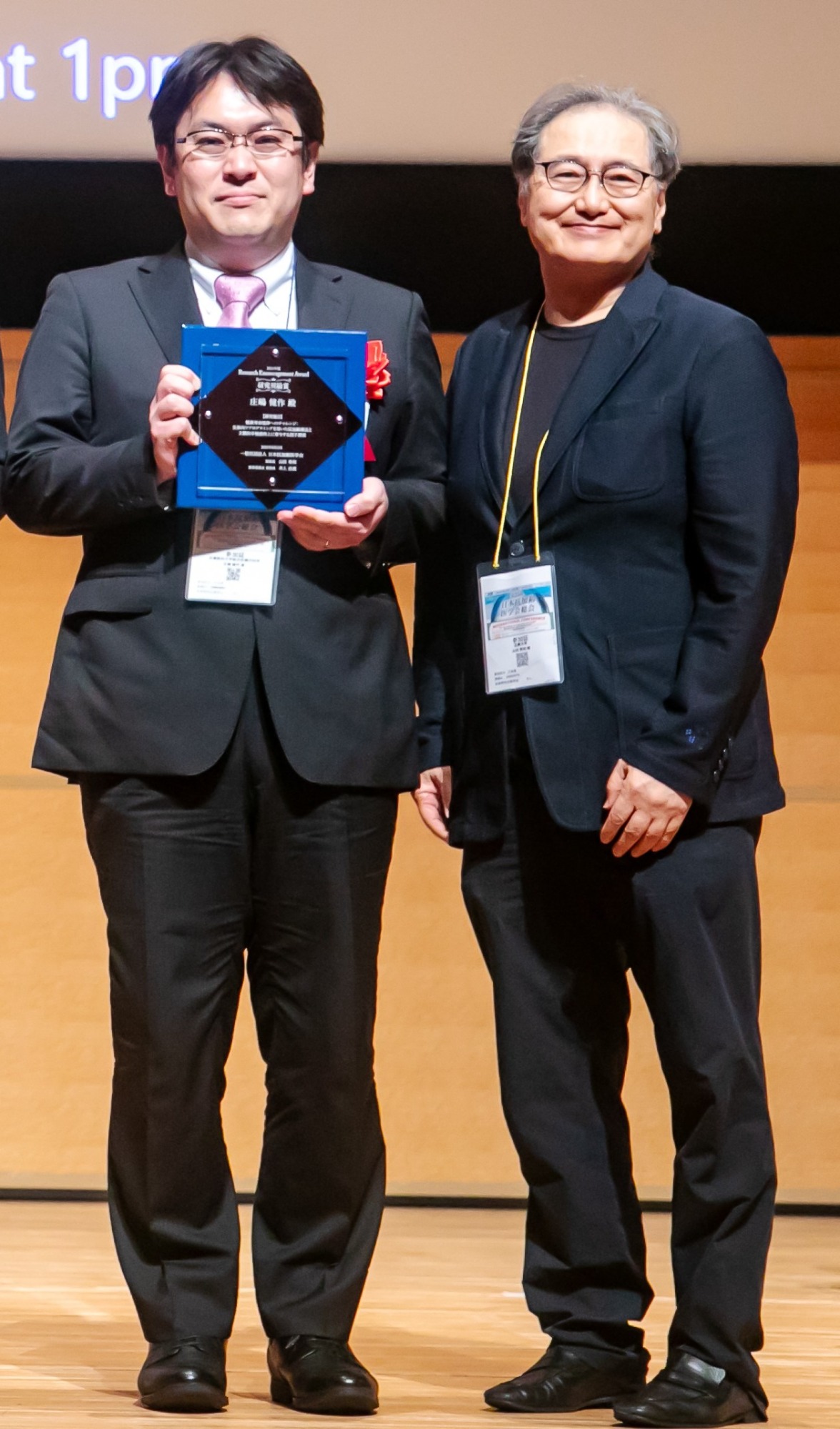Awards
2024 Japan Society of Anti-Aging Medicine Research Encouragement Award (Kensaku Shojima, Clinical Lecturer Department of General Internal Medicine)
Kensaku Shojima, a clinical lecturer Department of General Internal Medicine at our university, has received the 2024 Japan Society of Anti-Aging Medicine Research Encouragement Award. This award is given to promising young researchers who have demonstrated original research or technology related to anti-aging medicine. The award ceremony was held at the 25th General Meeting of the Japan Society of Anti-Aging Medicine, held at Grand Cube Osaka from June 13th to June 15th, and Shojima also gave an award lecture during the meeting.

Awarding Organization
Japanese Society of Anti-Aging Medicine
Award-winning Abstract
The challenge of extending healthy lifespan: Anti-aging therapy using in vivo reprogramming and the search for factors that contribute to improving subjective well-being
Research Overview and Background
As Japan enters a super-aging society, extending healthy lifespan is an urgent issue. To achieve this, we need to go beyond conventional disease prevention and treatment and provide fundamental intervention and psychological support for aging itself. Against this background, we are conducting multifaceted research from two angles: a basic medical approach to develop new anti-aging therapies (*1) using in vivo reprogramming, and a clinical epidemiological approach to explore factors that enhance the subjective well-being of older people.
Research Methods and Results
In basic research, we focus on in vivo short-term reprogramming, which involves the short-term expression of reprogramming factors (Oct4, Sox2, Klf4, and c-Myc) in mice. Based on previous research, we have successfully extended the lifespan and promoted muscle regeneration in premature aging mice while reducing the risk of tumorigenesis. Based on this, we are further developing our research by focusing on the effects of humoral factors (*2) induced during this process. We believe this method will lead to the establishment of safer and more practical anti-aging therapies and pave the way for future clinical applications. Meanwhile, in clinical epidemiological research, we are utilizing data from the FESTA study, a study of elderly people in the Tamba region of Hyogo Prefecture, to identify factors that contribute to improving subjective well-being. The FESTA study revealed that sleep satisfaction, good access to medical care, and maintenance of higher-level life functions show significant positive correlations with subjective well-being. These findings are likely to play an important role as the scientific basis for future policies and interventions to support the elderly. Through this integrated approach, which encompasses everything from basic research to social implementation, we are promoting research with the aim of realizing a society in which people can overcome aging and live happily.
(*1) Anti-aging therapy: A medical field that aims to suppress the decline in physical function and aging that comes with aging, thereby extending healthy lifespan.
(*2) Humoral factors: Substances that move through body fluids and have physiological activity